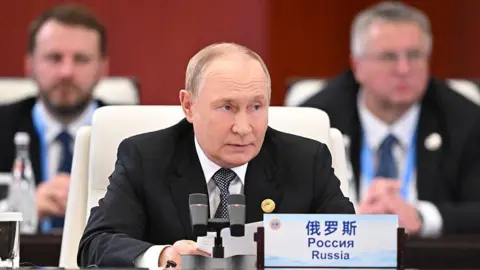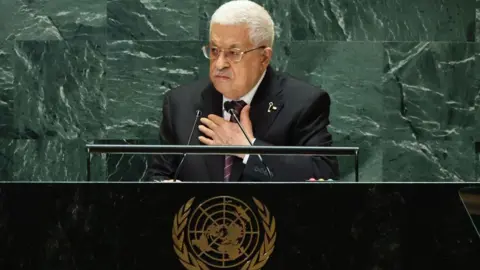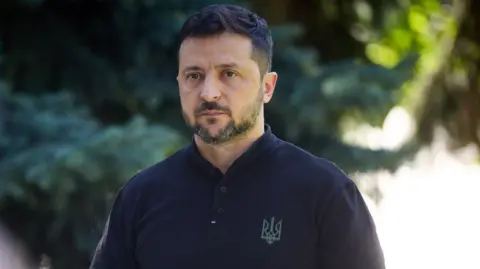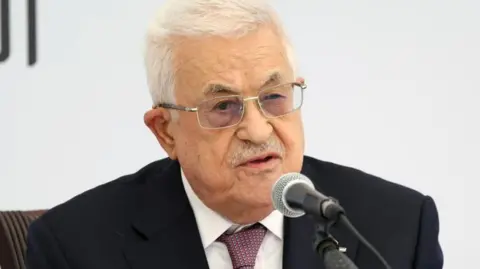In a striking development, French President Emmanuel Macron declared his intention to recognize Palestinian statehood at the upcoming United Nations General Assembly in September. This move not only positions France as a vocal supporter of Palestine but also heaps significant pressure on UK Prime Minister Sir Keir Starmer to adopt a similar stance. Observers note that France has been keen to make this declaration for some time but had to postpone due to regional tensions following attacks on Iran's nuclear facilities by Israel and the US.
Macron aims for his announcement to spark diplomatic conversations and encourage other nations to align with France. During a recent visit to the UK Parliament, he emphasized the collaboration between the two countries, stating, "working together to recognize the state of Palestine and to initiate this political moment is the only path to peace." A senior French diplomat underscored the potential influence of the UK, believing that a joint recognition would demonstrate seriousness to the international community, stirring action from remaining UN Security Council members.
However, the UK has historically hesitated to recognize a Palestinian state due to fears of undermining relations with allies like the US and Israel, both opposed to recognition. Recent statements from British officials suggest a cautious approach, with the government prioritizing a stable diplomatic process leading to a two-state solution over immediate recognition. In a statement, Prime Minister Starmer confirmed the UK acknowledges the right to Palestinian statehood, but stresses that recognition must follow a ceasefire to ensure a sustainable peace.
The debate within the UK government intensifies, with MPs increasingly vocal in their calls for recognition. The Foreign Affairs Committee has backed the push for a formal acknowledgment, reflecting growing dissent among lawmakers. Notably, Health Secretary Wes Streeting's recent remarks suggested a departure from the Cabinet's cautious stance, calling for action to recognize Palestine while it still exists as a viable state.
As the political climate shifts, the UK is at a crossroads. Failure to align with France's commitment may provoke significant parliamentary opposition, while hasty recognition could lead to accusations of lack of strategic vision. With over 140 countries already recognizing Palestine, the broader implications of these future political declarations raise questions about their effectiveness in achieving tangible improvements for those affected in Gaza.
Macron aims for his announcement to spark diplomatic conversations and encourage other nations to align with France. During a recent visit to the UK Parliament, he emphasized the collaboration between the two countries, stating, "working together to recognize the state of Palestine and to initiate this political moment is the only path to peace." A senior French diplomat underscored the potential influence of the UK, believing that a joint recognition would demonstrate seriousness to the international community, stirring action from remaining UN Security Council members.
However, the UK has historically hesitated to recognize a Palestinian state due to fears of undermining relations with allies like the US and Israel, both opposed to recognition. Recent statements from British officials suggest a cautious approach, with the government prioritizing a stable diplomatic process leading to a two-state solution over immediate recognition. In a statement, Prime Minister Starmer confirmed the UK acknowledges the right to Palestinian statehood, but stresses that recognition must follow a ceasefire to ensure a sustainable peace.
The debate within the UK government intensifies, with MPs increasingly vocal in their calls for recognition. The Foreign Affairs Committee has backed the push for a formal acknowledgment, reflecting growing dissent among lawmakers. Notably, Health Secretary Wes Streeting's recent remarks suggested a departure from the Cabinet's cautious stance, calling for action to recognize Palestine while it still exists as a viable state.
As the political climate shifts, the UK is at a crossroads. Failure to align with France's commitment may provoke significant parliamentary opposition, while hasty recognition could lead to accusations of lack of strategic vision. With over 140 countries already recognizing Palestine, the broader implications of these future political declarations raise questions about their effectiveness in achieving tangible improvements for those affected in Gaza.





















